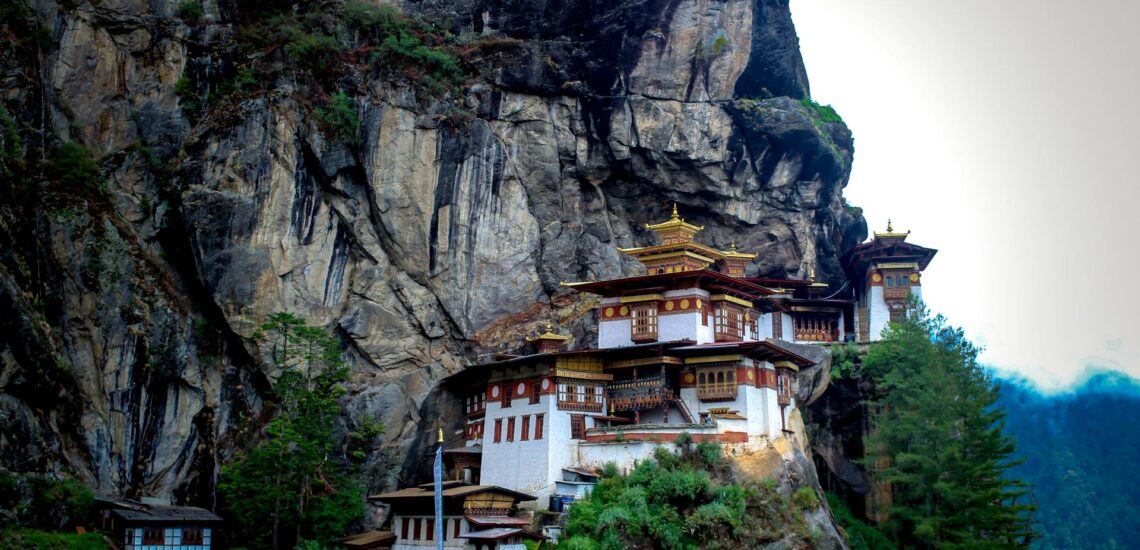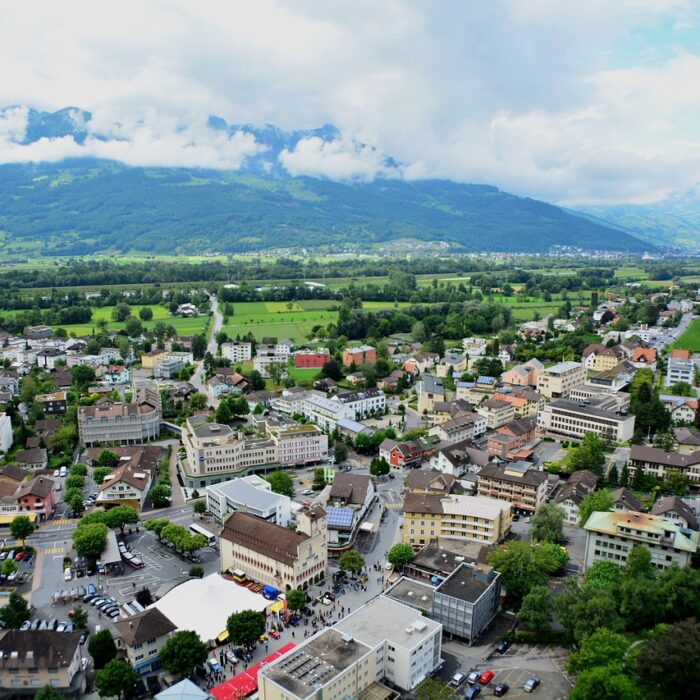Quick facts about Bhutan:
- Population: Approximately 800,000 people.
- Official language: Dzongkha.
- Capital: Thimphu.
- Currency: Bhutanese ngultrum.
- Government: Constitutional monarchy.
- Major religion: Buddhism.
- Geography: Landlocked country in the eastern Himalayas.
- Bordered by India to the south, east, and west, and China to the north.
Fact 1: Bhutan is a mountainous country
Bhutan’s landscape is predominantly mountainous, with approximately 70% of its total land area covered by towering peaks and rugged terrain. The country is nestled within the eastern Himalayas, boasting some of the world’s highest peaks, including Gangkhar Puensum, Jomolhari, and Chomolhari. These towering mountains not only contribute to Bhutan’s stunning natural beauty but also provide a habitat for diverse flora and fauna. The mountainous terrain significantly influences Bhutan’s culture, lifestyle, and traditional practices, as well as shaping its agriculture and economy.
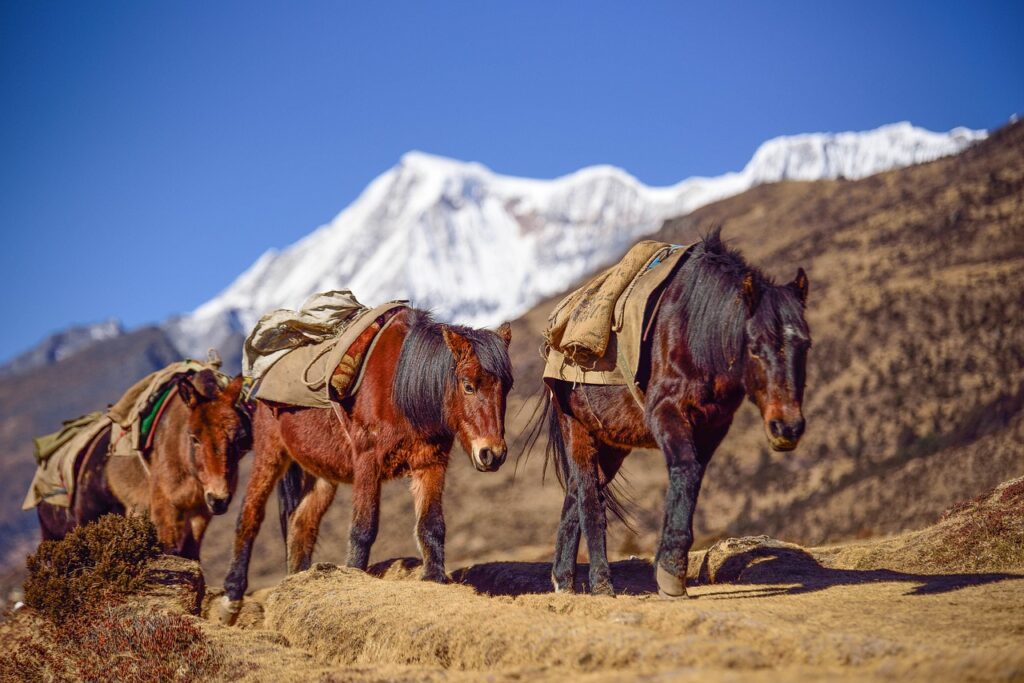
Fact 2: Bhutan is a very poor but happy country
Bhutan is classified as a lower-middle-income country, it is renowned for prioritizing the well-being and happiness of its citizens over purely economic measures. This unique approach is encapsulated in the concept of Gross National Happiness (GNH), which emphasizes holistic development and considers factors beyond material wealth, such as environmental conservation, cultural preservation, and psychological well-being. Despite its economic challenges, Bhutan’s commitment to GNH has contributed to a sense of contentment and fulfillment among its people, earning it a reputation as a “happy” nation. It’s essential to note that while Bhutan faces poverty-related issues, its emphasis on happiness and well-being sets it apart and demonstrates a different measure of success compared to purely economic metrics.
Fact 3: A visa to Bhutan costs $200 per day of planned stay
A visa to Bhutan entails a fixed cost of $200 per day for the planned duration of stay. Due to the impact of COVID-19 and changes in tourism policies, the cost of visiting Bhutan may have fluctuated. While the daily tariff for tourists typically includes accommodation, meals, transportation, and guide services, it’s essential to consider additional expenses and budget accordingly. In light of recent changes, it’s advisable to budget at least $300 per day to cover all expenses, including accommodation and food, ensuring a comfortable and enjoyable experience while exploring Bhutan.
Note: Planning to visit the country? Check if you need an International Driving License in Bhutan to drive.
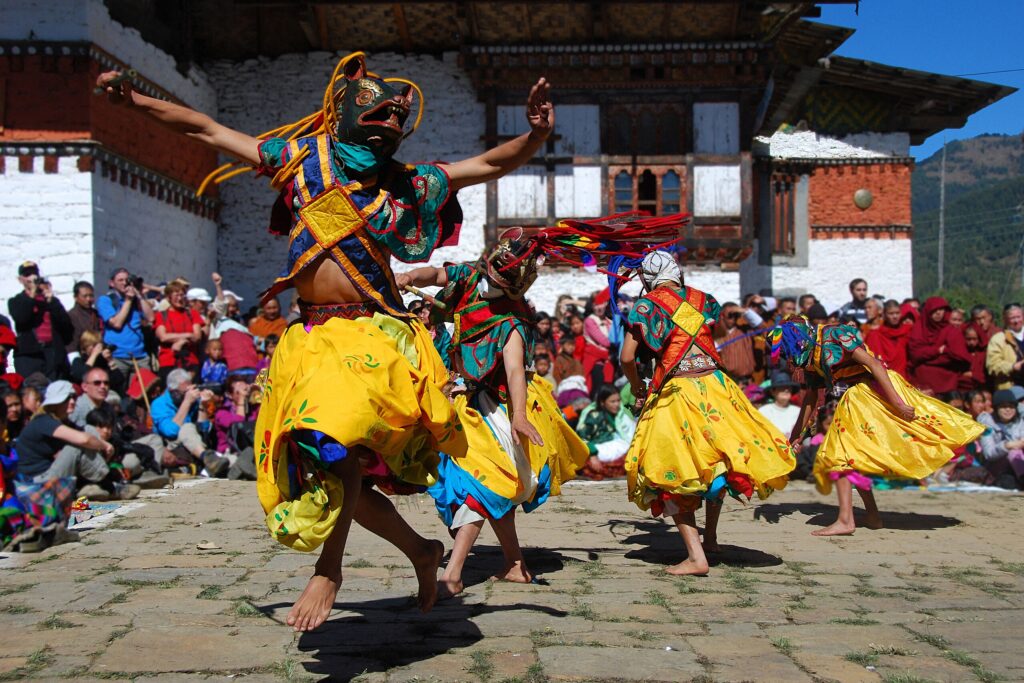
Fact 4: Bhutan has long been a very isolated country
Bhutan has maintained a reputation for its relative isolation and preservation of its Buddhist culture and traditions. Due to its geographic location in the eastern Himalayas and deliberate efforts to limit outside influence, Bhutan has remained relatively untouched by external forces for much of its history. This isolation has contributed to the preservation of Bhutan’s unique cultural heritage, including its deeply-rooted Buddhist practices, monasteries, and festivals. However, in recent years, Bhutan has gradually opened up to the outside world, embracing tourism and engaging in diplomatic relations with other countries while still striving to protect and promote its distinctive cultural identity.
Fact 5: Bhutan has the most dangerous airport in the world
Bhutan’s Paro Airport is renowned for its challenging approach and scenic location amidst the Himalayas. Paro Airport is considered one of the most challenging airports for pilots due to its narrow runway, high altitude, and surrounding mountainous terrain. Only a select few pilots are certified to land at Paro Airport, and they undergo rigorous training to navigate the demanding approach procedures required for safe landings.
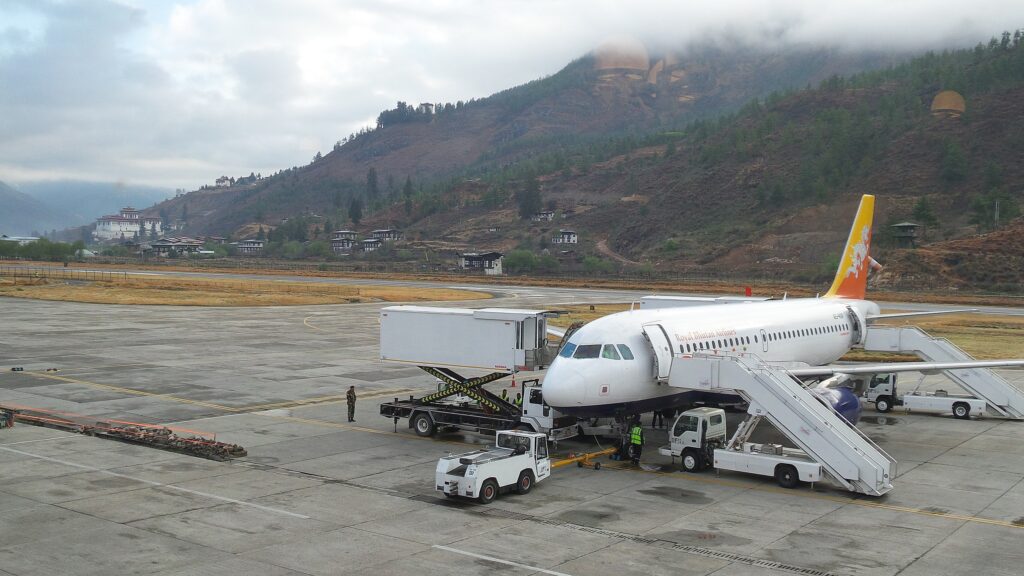
Fact 6: Phallus paintings can be found on houses in Bhutan
These paintings are part of Bhutanese folk tradition and are believed to ward off evil spirits and bring good luck and fertility. Phallus symbols, often depicted in vibrant colors and intricate designs, are considered sacred and are believed to possess protective and auspicious qualities in Bhutanese culture. While the presence of phallus paintings may seem unusual to outsiders, they are embraced as a cultural tradition and are regarded with reverence and respect by the Bhutanese people.
Fact 7: The national sport is archery
Archery is indeed the national sport of Bhutan. It holds a significant cultural and social importance in Bhutanese society, with archery tournaments and competitions being popular events throughout the country. Archery has been practiced in Bhutan for centuries and is deeply ingrained in the country’s traditions and folklore. It is not only a sport but also a social activity that fosters camaraderie and community spirit among participants.
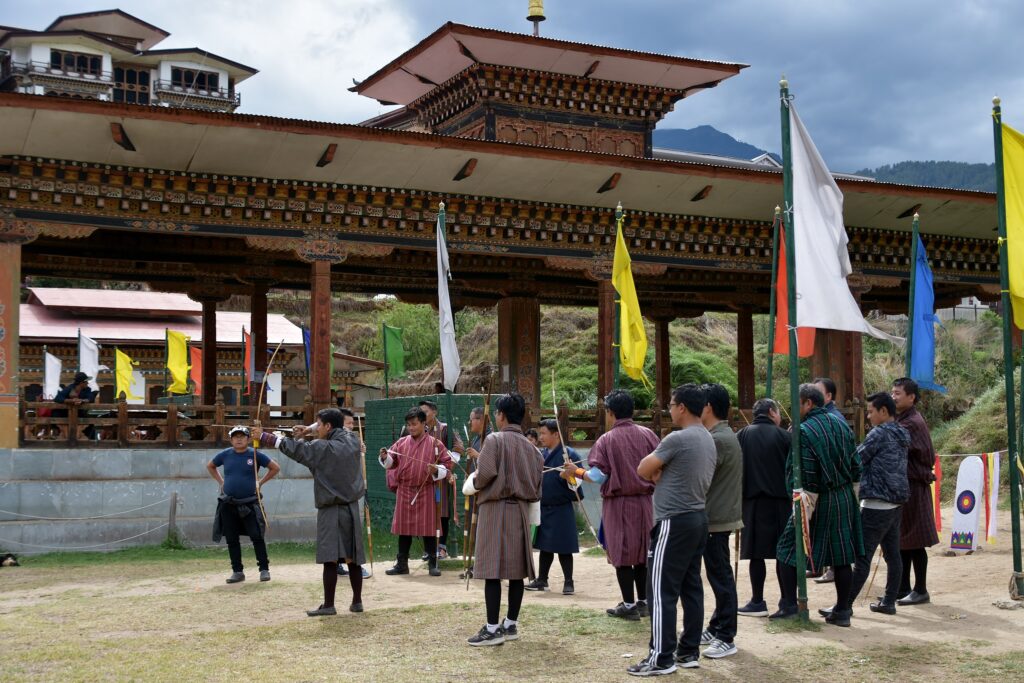
Fact 8: Bhutan bans smoking in public places
Bhutan has implemented strict tobacco control measures, including a ban on smoking in public places. The Tobacco Control Act of Bhutan, enacted in 2010, prohibits smoking in all public areas, including indoor workplaces, public transportation, restaurants, bars, and government buildings. Additionally, the sale of tobacco products is tightly regulated, and smoking in private spaces is also subject to restrictions. Bhutan’s government has taken a proactive approach to combatting tobacco use, recognizing the serious health risks associated with smoking and the importance of promoting public health and well-being.
Fact 9: Bhutan has banned commercial tree felling
Bhutan has implemented strict environmental conservation policies, including a ban on commercial tree felling. According to Bhutan’s Forestry Act of 1969, only old, diseased, or fallen trees can be harvested for timber, and this activity is tightly regulated by the government. The ban on commercial tree felling aims to preserve Bhutan’s lush forests, which are vital for maintaining biodiversity, regulating water resources, preventing soil erosion, and mitigating climate change.
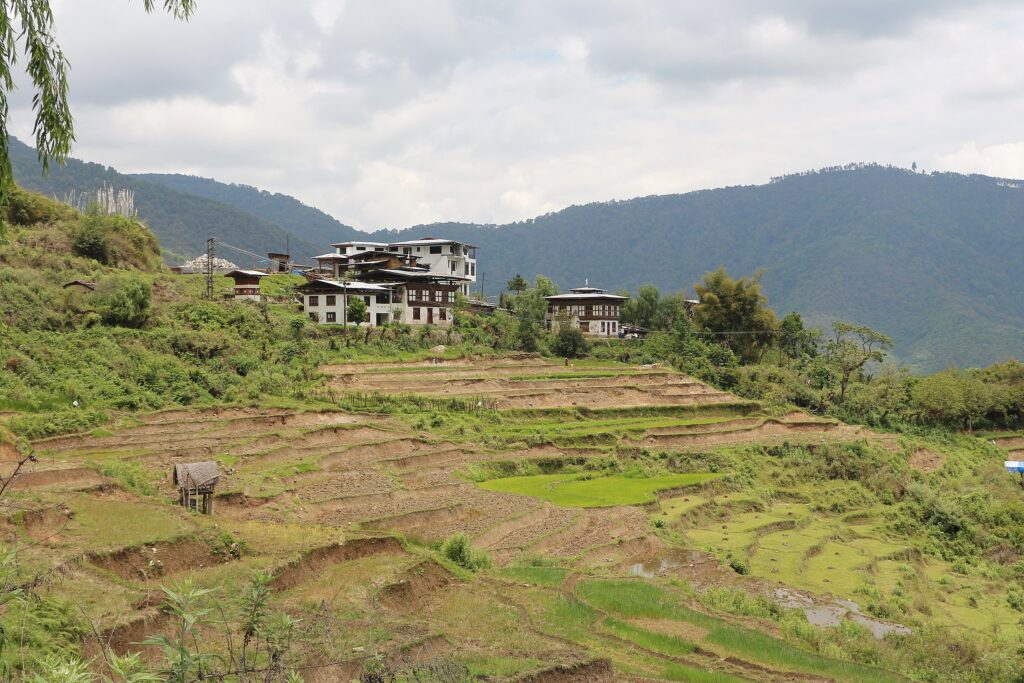
Fact 10: All farming is organic
Bhutan has embraced organic farming practices as a cornerstone of its agricultural policy. The country prohibits the use of synthetic pesticides and chemical fertilizers in agriculture, promoting instead traditional and sustainable farming methods that prioritize environmental conservation and the health of consumers. Organic farming in Bhutan is not only beneficial for the environment but also supports rural livelihoods and enhances food security. By cultivating crops organically, Bhutan aims to protect its natural resources, promote biodiversity, and produce high-quality, nutritious food for its citizens and visitors.

Published March 17, 2024 • 6m to read

